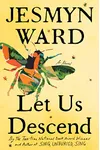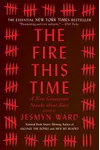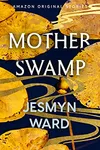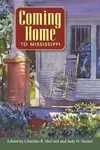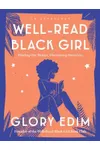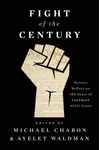Picture a Mississippi storyteller who weaves raw, lyrical tales of Black life in the South—meet Jesmyn Ward! Born in DeLisle, Mississippi, in 1977, Ward has become a literary powerhouse, earning two National Book Awards and a MacArthur 'Genius' Grant for her unflinching novels and memoirs. Her work, rooted in personal tragedy and resilience, shines a light on the struggles and beauty of coastal Black communities.
With a voice that’s both poetic and piercing, Ward’s stories resonate far beyond the page. Whether you’re drawn to her vivid characters or her fearless take on race and poverty, her writing is a call to see and feel the world through a new lens. Let’s dive into the life and legacy of this remarkable author.
The Making of Jesmyn Ward
Jesmyn Ward grew up in DeLisle, a small, tight-knit community on Mississippi’s Gulf Coast. Raised by her mother, a maid, and surrounded by extended family, Ward faced poverty and racism early on. A turning point came when her mother’s employer paid for her to attend a private school, where she was often the only Black student. This experience, coupled with the tragic loss of her brother to a drunk driver in 2000, fueled her drive to write. Ward channeled her grief into stories, earning a BA in English and an MA in media studies from Stanford, followed by an MFA in creative writing from the University of Michigan.
Her early career included a Stegner Fellowship at Stanford and a stint as the Grisham Writer in Residence at the University of Mississippi. But it was her connection to her roots—Mississippi’s history, hurricanes, and resilient communities—that shaped her voice. Ward’s writing began as a way to honor her brother and her hometown, setting the stage for her groundbreaking career.
Jesmyn Ward’s Unforgettable Stories
Ward’s novels, set in the fictional Bois Sauvage, Mississippi, blend gritty realism with lyrical prose. Her debut, Where the Line Bleeds (2008), follows twin brothers navigating poverty and tough choices after high school. Critics praised its stark beauty, calling Ward a fresh voice in American literature. Her second novel, Salvage the Bones (2011), won the National Book Award for its gripping tale of a family bracing for Hurricane Katrina. Told through the eyes of a pregnant teenager, it’s a raw, hopeful portrait of survival.
In 2017, Ward made history as the first woman and Black American to win a second National Book Award for Sing, Unburied, Sing. This haunting road novel weaves past and present, following a Black family and the ghosts of Mississippi’s history. Her 2023 novel, Let Us Descend, explores slavery through Annis, a young woman sold into bondage, earning praise for its epic, musical prose. Ward’s memoir, Men We Reaped (2013), mourns five young Black men from her life, including her brother, blending personal loss with a searing critique of systemic racism.
Ward’s style is unmistakable: poetic yet grounded, with characters who face brutal realities but hold onto love and dignity. Her work draws comparisons to Toni Morrison and William Faulkner, but as fellow Mississippian Kiese Laymon notes, Ward isn’t just following Faulkner—she’s competing with him.
Why Jesmyn Ward Matters
Jesmyn Ward’s impact goes beyond awards. Her stories amplify the voices of poor Black Southerners, challenging readers to confront racism, poverty, and resilience. As a professor at Tulane University, she mentors young writers, shaping the future of literature. Her anthology, The Fire This Time (2016), inspired by James Baldwin, showcases Black writers tackling race in America, cementing her role as a cultural leader.
Ward’s work is a bridge between past and present, blending Mississippi’s history with urgent modern questions. At 45, she’s the youngest recipient of the Library of Congress Prize for American Fiction, proof of her enduring influence. Her stories don’t just entertain—they demand empathy and action, making her a vital voice in today’s literary world.
About Jesmyn Ward
- Born: April 1, 1977, in DeLisle, Mississippi
- Key Works: Where the Line Bleeds, Salvage the Bones, Sing, Unburied, Sing, Let Us Descend, Men We Reaped
- Awards: Two National Book Awards (2011, 2017), MacArthur Fellowship (2017), Library of Congress Prize for American Fiction (2022)
- Current Role: Professor of creative writing at Tulane University
Ready to explore Jesmyn Ward’s soul-stirring world? Grab Sing, Unburied, Sing and dive into her lyrical take on Black Southern life!



